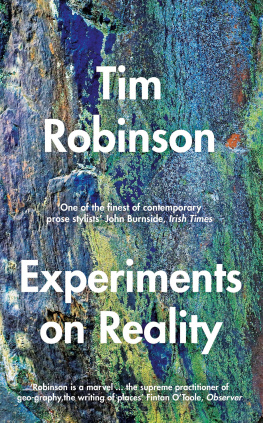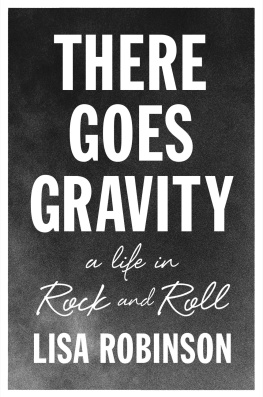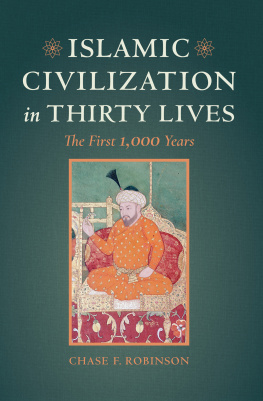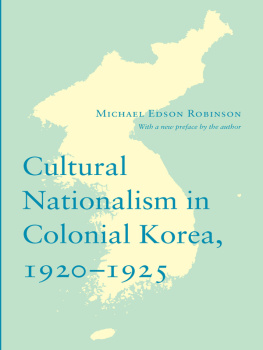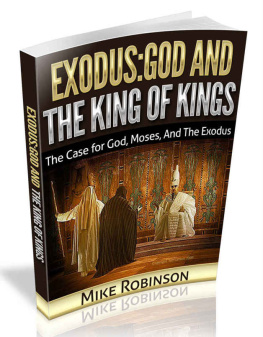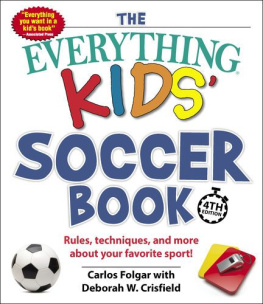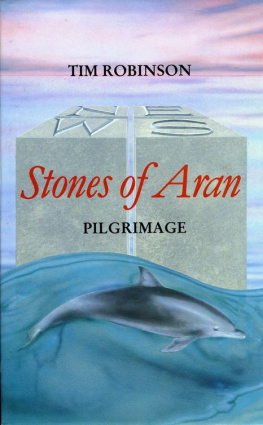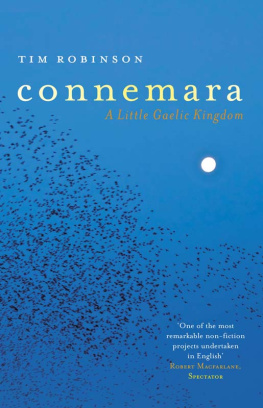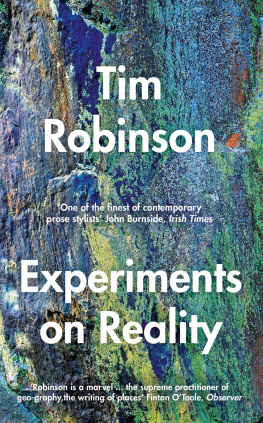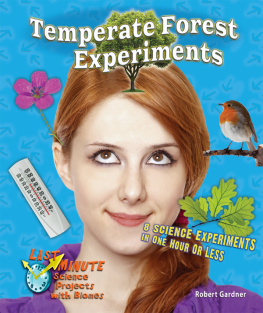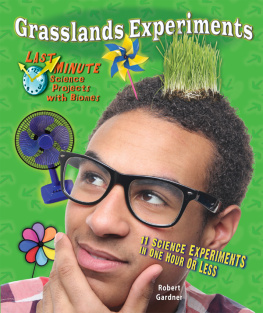Preface
Most of these texts have an initiating mechanism, a strange device, a detonator, to blow them away into neighbouring geographies of memory, autobiographical fantasy, or, in one case at least, a desert of daftness. (Some notes on this matter are at the back of the book.) My focus is, as always, on the multitudinous ways in which our physical bodies relate to the physical universe. This commitment to material nature in its wondrous plenitude encourages me to reappropriate terms, themes and tones long regarded as the property of religion, and dares me to denounce supernaturalism as blasphemy.
The rest of the book is taken up by two longer pieces. Backwards and Digressive is an account of the evolution of the visual art of my other self, Tim Drever. A Land Without Shortcuts is an overtly environmentalist lecture, functioning here as a concluding (if not conclusive) rattle of drums.
From my horrified and fascinated teenage reading of Sartres La Nause I remember Roquentin, the novels protagonist, picking up a stone and revealing a bare patch of sticky mud, which to him represented the disgusting truth of the matter, of matter itself, utterly alien to human existence. I wanted gently to disengage that stone from his grip and carefully replace it in its grassy nest, so healing the rift between humankind and the inanimate. But the belief behind that urge was not animism. The distinction between the animate and the inanimate has been hard-won and is foundational. Some believe that mountains are conscious; I cannot imagine why one would even want to believe such an absurdity. While few thinkers would claim to have answered the hard question of consciousness, science is beginning to find its way about the soft labyrinth of the brain, the material foundation of mentality. Disembodied life after death is another belief I find aesthetically unattractive. The course of evolution that brought us forth from cosmic dust is a sequence of marvels the contemplation of which has dazzled and delighted me all my life, and it is demeaned by the spiritualist claim that the soul can exist without the support of matter, as it were by divine conjuring. No, there is only one world, and that is all we need to know.
Tim Robinson, August 2018

Hunter-gatherers
When I was about eleven and my brother eight, our parents took themselves off for a short caravan holiday, leaving us in charge of the house, the hens, and ourselves. Looking back, I suspect my father was going through one of the bouts of depression he reckoned struck him down every five years, and that the caravanning was undertaken in obedience to our family doctors orders, in those days when doctors were trusted friends who ordered one to do what one wanted to do in any case. But at the time we had no understanding of his condition, and we waved the pair of them off with glee. The weather was fine, the countryside (watery intricacies of Wharfedale and airy uplands of Ilkley Moor in Yorkshire) intimately known to us. As to feeding ourselves, the War had been over for a year or two, rationing restrictions were being relaxed, and we planned to indulge our newfound taste for bacon and eggs followed by Same again!
As soon as the parents were gone we jumped on our bikes and pedalled a few miles between green hayfields and little woods to Addingham Scar, a steep limestone crag, tree-grown, that scrambles down from the lane above to the banks of the River Wharfe. This was a favourite and almost secret adventure-world for us; passers-by on the lane might remain unaware of the great rocky slope falling away from them unless they peered through the roadside hedge, and from the opposite bank of the river it was shrouded in birch trees. Once we caught a large (record-breaking, we reckoned) slowworm over a foot long here, a smooth flexuous bar of silver; we kept it for some time, feeding it on slugs, and it used to rest coiled around my wrist like a sleep-heavy bracelet. On another occasion we turned over a stone and disturbed a cluster of young slow-worms just a couple of inches long and of the tint and texture of bronze. We brought a few of these away with us, but they soon escaped through chinks in their new cardboard home. (Fifteen or so years later, in the Grand Bazaar of Istanbul, I was to buy my beloved a snake bracelet of coiled metal wire the colour of old gold, said to have come out of revolutionary Russia hidden in the clothing of a rich migr, because it reminded me of those lovely longlost creatures. It too was flexuous, and in addition it had eyes of tiny rubies, and a row of small blue beads down its spine. But not everyone loves such things: Imagine having a snake on your wrist! she shuddered. So it rests with me, one of hardly a dozen life-deep treasures.)
On this occasion we had no luck on the Scar and decided to explore a little stream hidden among trees on the other side of the lane above. There were two or three houses nearby and we were not quite sure we were on public land, so we moved cautiously. The stream was shrunken from a long period of dry weather. Its landlocked pools and flowery banks were abuzz with insect life. Damselflies hung in the air like tiny blue neon signs, water boatmen sculled purposefully to and fro on still water faces, water beetle larvae lurked submerged among slimy weeds. All these little creatures, and dozens more, were familiar to me; I still have An Insect Book for the Pocket (OUP, 1946), in which I looked them up as I came across them and on the flyleaves of which I listed those I had seen, under their Latin names, in a juvenile block-letter script. My longsuffering mother used to complain that the scorpion-like dragonfly larvae living in a jamjar on a window ledge by the kitchen door frightened the milkman by goggling at him with bulgy eyes. I pressed my brother and his little friends into service to scour heathery acres of Ilkley Moor in search of silky brown-haired caterpillars of the northern eggar moth and the fat green caterpillars with pink warts of the emperor moth. Even minute translucent gnat larvae, hanging head-down by a breathing tube in their tails from the surface-film of a cupful of water in a neglected flowerpot, did not escape my fascinated gaze. These little beings and the secretive nooks they inhabited remain vivid in my mind, to the point of hyper-reality; writing about them now, nearly a lifetime later, both fixes and falsifies them, like pinned butterfly corpses in a cabinet.
But that day by the stream above the Scar brought us bigger game. A sudden turbulence in a pond cut off by falling water levels alerted us to the presence of a fish. We peered, and made it out, lying on the bottom, sleek brown against glistening pebbles: a sizeable trout. We considered the problem. Would it be legal to take it? Were we trespassing, in fact? And then we had nothing to catch it with or put it in if we succeeded; the idea of attacking it with sticks unnerved us. But what a prize to greet our parents with on their return, if we could make it ours! We cycled home thoughtfully, and made our plans.
We were up early the following morning. We located our fathers landing net he was a very occasional angler and unscrewed its long handle. With the net itself disguised in a towel and strapped to the crossbar of my brothers bike, and the handle to mine, we slid silently into the silent dawn. Keeping low, out of sight of the nearby houses, we crept down through the little wood to the stream. The fish was still there. Voices of men coming along the lane above made us flatten ourselves to the stream bank for a panicky while until they passed. Then we screwed its handle onto the landing net, and in no time at all the trout was ours. We must have banged its head with a stone I do not remember that and soon we were tearing homewards, triumphant.

